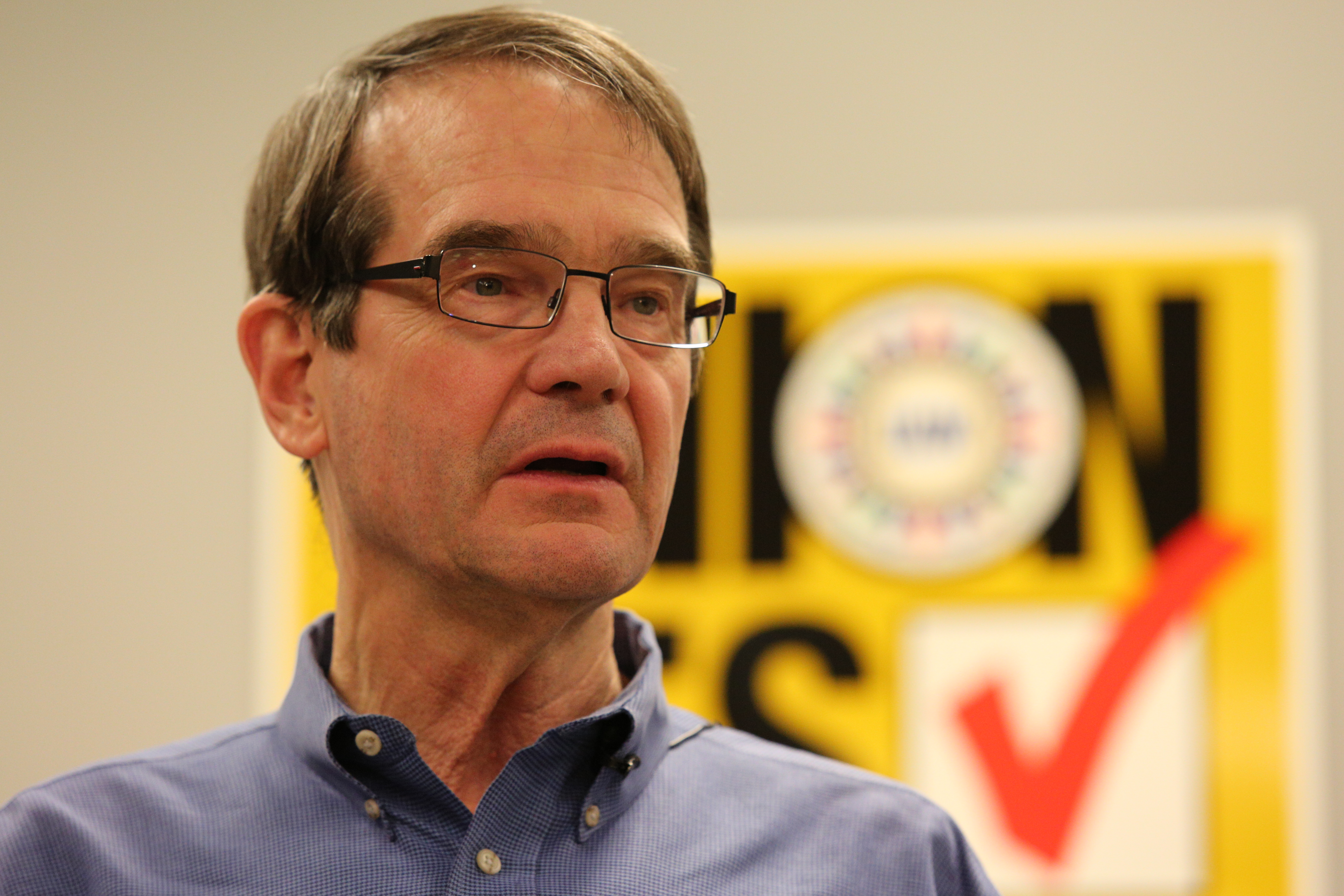Volkswagen workers cut off the march south for the United Auto Workers union last week.
UAW President Bob King called the union defeat "a temporary setback" and vowed to continue organizing efforts in the traditionally non-union South. King also said the union's legal staff "is reviewing all of our options," including a possible challenge to the election results based on what he said were "threats and intimidation" by Tennessee Republican leaders.
"One great thing about the UAW and one thing great about workers is that we don't quit," he said after workers rejected representation by the Detroit-based union. "We get back up when we get knocked down and we'll fight another day."
But after a two-year organizing campaign in Chattanooga, the defeat may have cost the union its best chance to get a toehold among the foreign-owned car companies that have located across the South over the past three decades. Unlike other auto makers, Volkswagen did not resist the UAW and allowed its representatives to publicly campaign last week in the plant.
"This was UAW's best shot in the South so these results are a big blow for the union," Stephen Silvia, an associate professor of economics and a labor expert at American University, said Saturday. "I think their future does depend on organizing foreign transplants and Volkswagen was the only one of these companies to sign a neutrality agreement and not resist the UAW."
Membership in the UAW has dropped from a peak of more than 1.5 million in 1979 to below 400,000 today. The UAW represents only a dozen of the more than 900 automotive suppliers in Tennessee. The VW election was the first major election for the UAW at an automotive assembly plant since 2001, when Nissan workers rejected the union in Smyrna.
VW may not have opposed the UAW in Chattanooga, but the union did face an aggressive public campaign outside the plant gates by many Republicans, business groups and conservative activists eager to block the UAW's growth in the South.
Tennessee legislative leaders threatened to withhold incentives for a likely expansion. U.S. Sen. Bob Corker, R-Tenn., said he was told by VW managers that the plant would add a line if the union was rejected. And Gov. Bill Haslam warned that UAW representation at Volkswagen might scare away suppliers.
View our Volkswagen/UAW special page with timeline, slideshow, local and national coverage and opinions
King called such comments "outrageous." But UAW Secretary-Treasurer Dennis Williams conceded that the comments may have weakened support for the UAW, which claimed to have majority support last year among VW workers in Chattanooga.
"We started to see some movement when the governor made his comments," Williams said. "Then Sen. Corker, who said he was not going to get involved, came back [to Chattanooga] and had a press conference. We had a feeling that something was happening."
Kenneth G. Dau-Schmidt, a professor of labor and employment law at Indiana University in Bloomington, Ind., said the UAW could challenge the election if the Republicans' comments are seen as illegal threats or coercion.
"It would be grounds to set the election aside and have to run it all over again at a later date because it interferes with the 'laboratory conditions' required by federal law," Dau-Schmidt said. "Although there aren't many precedents where a party other than the employer attempts to intimidate the employees before an election, the purpose of NLRB elections under federal law is to get the employees' free and informed decision about whether they want to be represented by the union."
But Maury Nicely, a Chattanooga attorney who supported the anti-UAW group Southern Momentum, said the groups simply got their message out better than the union. He cited a flier sent to workers talking about wages above $28 per hour if the UAW was voted in. Nicely said Southern Momentum noted that amount wasn't likely or feasible.
"I'd like to think [employees] were motivated by information," he said.
Mike Burton, an anti-UAW employee, said his side handed out about 800 "no to UAW" T-shirts. They also had more than 600 employees' names on anti-union petitions.
King, who had vowed to organize a major foreign transplant in the South before he retires in June, said the vote "saddens me because this was a great opportunity for America to have a works council" patterned after the successful German model. VW uses works councils around the globe to bring white-collar and blue-collar workers together to resolve work problems and rules.
The UAW president said Germany is the most successful industrialized country, with the highest average manufacturing wage, in part because of its better union-management relations.
"We were prepared to look at how we have done business in the past and say let's try this," King said. "It's a new model and it would generate a new type of relationship."
Michael Fichter, a fellow at the Worker Institute at Cornell University, said the union defeat is another setback but not the end of the UAW.
"The UAW is a vibrant organization that has run a number of successful organizing drives over the past years in the South and is currently running two major campaigns at Mercedes in Alabama and at Nissan in Mississippi," Fichter said.
"But it will make things more challenging for the UAW."
Contact Dave Flessner at dflessner@timesfreepress.com or at 757-6340.

